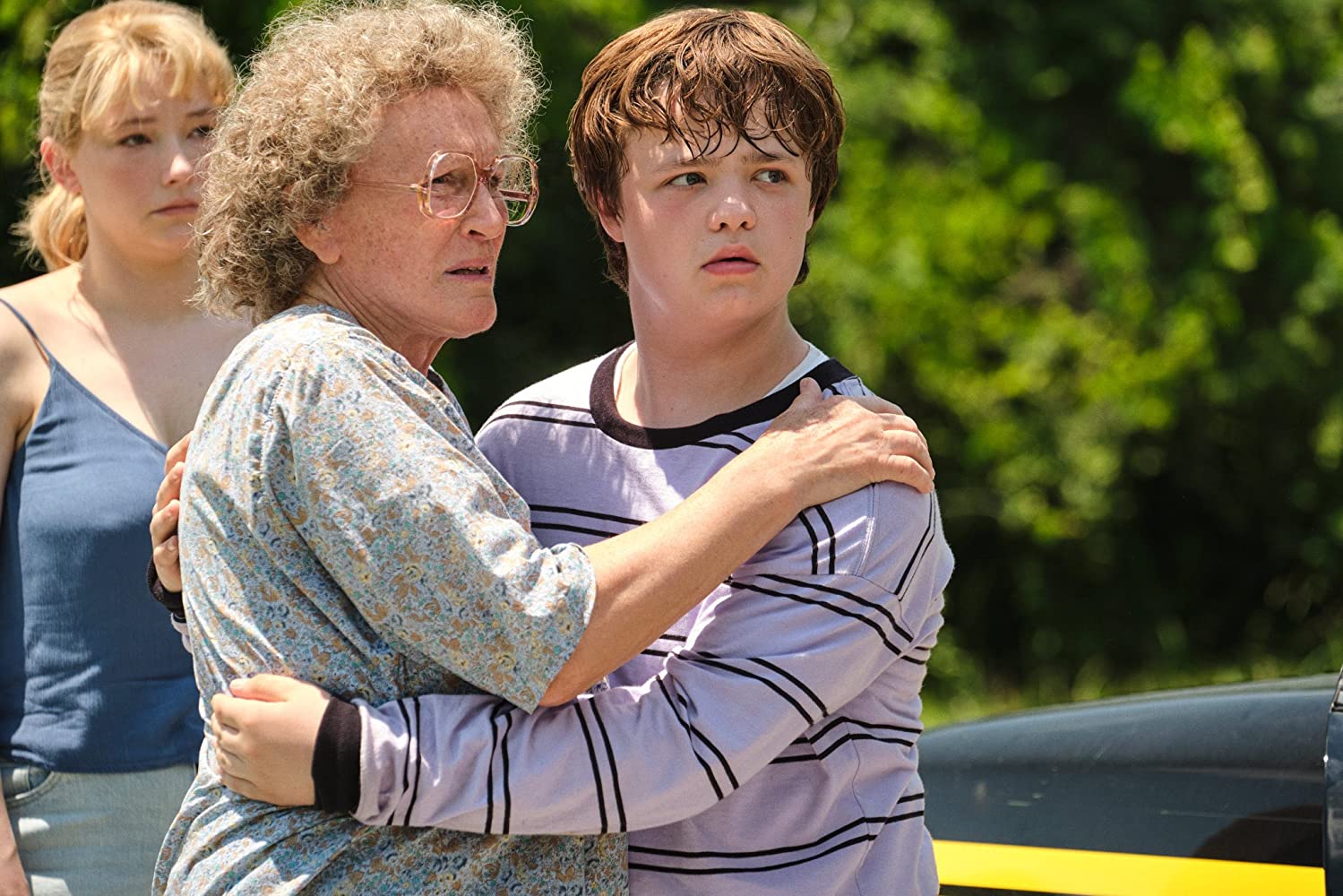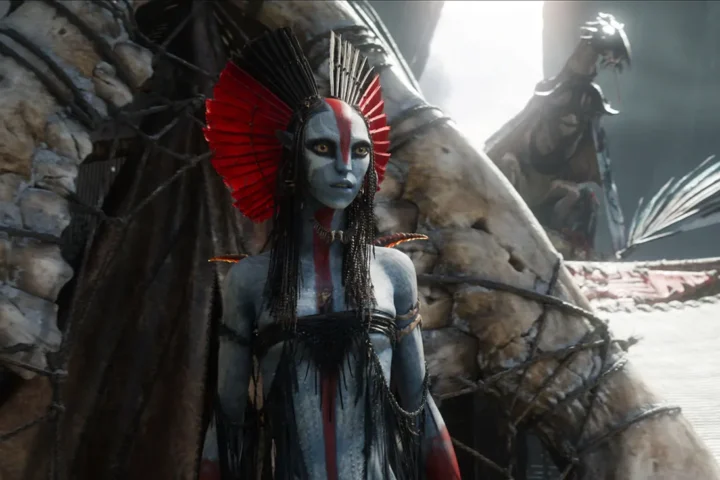Hillbilly Elegy, Ron Howard’s movie version of 2016’s heralded cultural anthropology epic Hilbilly Elegy: A Memoir of a Family In Crisis, is a sum-of-its-parts picture and reductive adaptation which, often in spite of itself, has strong enough performances to ultimately be compelling.
And that’s because stars Amy Adams and Glenn Close, playing a deeply flawed, southern Ohio mother-daughter duo — one stuck in a vicious cycle of addiction and another who final breaks generations of poor decisions — do significant heavy lifting to transcend the picture’s middling direction and faltering screenplay. They almost succeed.
Your reaction to this often overwrought hothouse movie, a chronicle of confrontations driven by cycles of systemic poverty and abysmal parenting, will depend on whether you feel its simplification leaves enough to still engage with after its bigger canvas commentary about the mores and values of rural Appalachians has been largely jettisoned. This less than judicious pruning by Howard and screenwriter Vanessa Taylor (The Shape of Water) doesn’t do author J.D. Vance’s celebrated autobiography any favors.
Their movie version charts the wherewithal Vance (Gabriel Basso) summoned to transcend the limited options of the Rust Belt milieu of Middleton, Ohio, that of his stormy childhood —notably an abusive mother frequently strung out on prescription painkillers before graduating to heroin — to go on to military service, Yale Law School and a successful venture capital career.
Early scenes are accompanied by voiceover reflections on a childhood spent in the holler of the Kentucky hills, a world where family is everything, and first, and you protect your own. Cinematographer Maryse Alberti’s golden, nostalgia-tinged lensing of this atmospheric setting is a classical evocation of memory in a near-mythic locale, here one where your adult uncle is not afraid to deliver a beatdown to a teen bully who dunked you in the local pond.
Flash to the present and struggling collegiate J.D. is unable to pay his Yale tuition, aiming for a coveted internship with a prestigious law firm. His supportive girlfriend, Usha (a warm Freida Pinto), encourages him, but deep down he feels an imposter in the Ivy League having attended a state school for undergrad, been raised in lower income volatility and altogether unaware of fancy social graces like, for example, the arrangement of table service for a tony recruitment dinner.
A frantic phone call finds J.D. summoned back to Middleton by sister Lindsay (Haley Bennet) to help rescue wayward mother Bev (Adams), a longtime drug abuser who has graduated to heroin and an overdose. This sets up the picture’s narrative tension between family obligation and personal aspirations, and it takes J.D. most of the picture to sort out this radical clash of priorities.
His trek is rendered in an episodic narrative of crises and confrontations, shuttling back and forth in time with breakneck histrionics. In flashbacks, young J.D. (Owen Asztalos) is subjected to his mother’s emotional and physical abuse, life-threatening episodes (mom tries to crash the car while they’re driving), painful public meltdowns (Adams goes for broke, flailing about the streets in hysterics), misguided boyfriends and an episode where, at her job as a local nurse, she gets high during work, strapping on roller skates before giggling and whizzing around patient gurneys and promptly getting fired. Adams, one of our best actresses, plays all of this at such a manic crescendo that for much of the film it’s hard to feel anything for Bev other than disbelief at her reckless self-destruction.
Adams has played rural working class before, notably in her powerful 2005 Junebug turn which put her on the map (and gave her a first Oscar nod). Decked out here in too-tight jeans, slight pudginess and wildly unkempt wigs, her Bev is a troubled vision of once appealing, small-town, girl-next-door gone to hell, wildly veering mood swings and impossibly inappropriate mothering. She takes Bev from funny to fearful, usually on a dime.
Close, on the other hand, as J.D.’s. rough-hewn maternal grandmother nicknamed “Mamaw,” tromps around imitating The Terminator while dispensing hardcore bon mots like “talk to the barrel of my gun” and “kiss my ruby red ass.” Mamaw can see daughter Bev going off a cliff, but doesn’t intervene, and in one scene, even encourages young J.D. to lie to police in order to prevent his mother’s arrest. In another, she insists he provide a urine sample to avoid the potential suspension of Bev’s nursing license.
Mamaw is quite a tough nut to crack, aware of the limitations of her lineage (and her own parenting deficiencies), a long-suffering wife in a tumultuous marriage to Papaw (Bo Hopkins) who has clawed her way through every day, a tough-love, grizzly grandma who eventually puts the kibosh on Bev’s antics, taking young J.D. as her charge. Close, with thick glasses, blown out ‘do and oversized sweatsuit/pajama ensembles, goes lower-strata here like nobody’s business.
Her Mamaw also takes control of the picture’s final third, both irascible and affecting when she buys young J.D. a ninety-dollar calculator to mitigate his failing Algebra grades and then, after he aces a test, sits in her Lazy Boy holding the paper, and its future promise, close. There’s also a superb, brief exchange with a Meals on Wheels delivery man.
The supporting cast is uniformly solid, namely Bennet as J.D.’s beleaguered sister, herself a wife and mother who has endured Bev’s terrors her whole life but without the safe distance of Yale, eking out a living in the local bargain shoe store. Bennet believably conveys the bond between an adult brother and sister who may lead different lives but will always speak a sad shorthand about their family.
And the unshowy, appealing Basso navigates Vance’s dual dilemmas of frustration over his family troubles while defending his mother in the face of Ivy League condescension. Bev, he explains, was once the high school salutatorian and “smarter than anyone in this room.” It’s an important moment.
Despite such cherry picked compensations, this often clunky adaptation is hampered by Howard’s studio professional sheen, which tends to soften the material’s harder edges, and screenwriter Taylor’s zigzagging time structure, each awkwardly imposed on the material. You can sense that the actors struggling to create complete characterizations despite the elliptical storytelling which requires near constant pathos across individual scenes.
And that is one of the picture’s central problems — neither Bev nor Mamaw are allowed to develop in a linear, cumulative fashion. This is particularly true of Adams’ Bev, who never gets to speak much about her struggles yet is required to have meltdowns every other scene; the film needs more connective tissue between them. Consequently, both characters feel largely representative — The Fallen Addict and The Heroic Matriarch — rather than recognizable humans.
Cynics have gleefully derided the picture as Hollywood pandering of the highest order, industry royalty broadly slumming as rural folks in search of Oscar gold, a quest eluding both Close and Adams a combined total of 13 times. And the gauche deglamorization of both stars on the order of Charlize Theron in Monster is certainly a sight. That, it seems, is unfair to the hard work and conviction of both actresses, bringing their A-games to a flawed picture.
For many, the book’s raison d’être, an inquiry into the hearts and minds of Appalachia just after the 2016 election of Donald Trump, will be missing from this film. And by intentionally subtracting such cultural discourse, the movie becomes a generic, narrower (however slightly more accessible) tale of one family in crisis.
For its faults, Hillbilly Elegy has real feeling and sincerity. It may not quite be good, but it has a heart.
2 1/2 stars.



